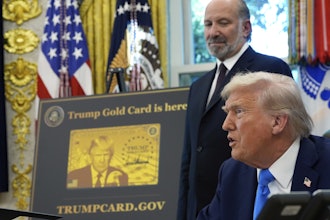
“I wish my salespeople were more motivated. They just seem apathetic and complacent. How can we better motivate our sales team?”
That’s what this passionate sales leader shared on a recent discovery call. He’s not alone.
Lack of motivation is a dominant concern for sales leaders. Sales leaders ask themselves, “How can I better motivate my sales team?” And they struggle to answer this question — not from a lack of ideas; they’re simply asking the wrong question.
Early in my career, I learned an important lesson from a great sales leader (who happens to be my old man). He explained to me, “You can’t motivate people; motivation is an inside-out process. But you can create an environment where people motivate themselves.”
If your team lacks motivation, focus on the environment, not the individual. Use the “seven E’s” to assess your motivational environment.
Educate
A few years ago, I tried motivating my kids to play golf; it didn’t work. They didn’t want to play. I thought, “Golf is amazing! Who wouldn’t want to play golf?” One day, it hit me. Initially, golf isn’t fun; it’s frustrating. Their apathy stemmed from a lack of skills. I was making them play instead of teaching them to play. So, I dedicated more time to teaching. When I taught the skills, and they practiced, they were motivated to play.
Sellers are more confident when they’re equipped with the right tools. Training is not a one-time event; it’s ongoing. Incorporate sales training at every company meeting, conference call and review. Education builds confidence and motivation.
Efficacy
Do your salespeople believe their actions lead to the desired result? Selling is a delicate balance between controllable effort and uncontrollable outcomes. You can do everything right on a sales call and still not win the business. This challenge creates a disconnect between actions and outcomes. Your goal is to make the connection.
Sellers are highly motivated when they believe their actions lead to a result. Increase the seller’s belief that their efforts lead to goal attainment. For example, regularly share case studies and success stories. Reverse-engineer your team’s successes and highlight the desired actions that led to the result. Success provides proof, and proof increases belief.
Eliminate Barriers
You can’t fish if you’re too busy mending nets. Salespeople are expected to sell, yet they are overwhelmed with a myriad of non-selling-related activities. Our research shows that sellers spend a paltry 20% of their week meeting with opportunities. What’s happening the other 80% of the time?
Conduct a barrier analysis with your team. Ask your team what’s getting in the way. Salespeople are inundated with administrivia: CRM maintenance, pointless reporting, customer-service activities, and more. Protect your team from the busy-work bombs dropped by other departments. Enhance motivation by unburdening your team.
Elevate Expectations
Salespeople rise or fall to your expectations. When you expect more, you get more. Leaders inspire others through expectations. The best leaders instill a belief there is greater possibility than what’s perceived by the seller. Challenge your team with the right sales objectives. Stretch their capacity to achieve by raising their goals. Challenge them to achieve more: more calls, more appointments, more margin, more demos, more relationships.
If customers don’t occasionally challenge your price, you’re not charging enough. If sellers don’t challenge your expectations, you’re not asking enough.
Endowment Effect
How involved is your team in the goal-setting process? Typically, sales leaders are given an overall target, and then they divvy it up among the sales team. The forecast is issued to each seller, and the ping-pong negotiation begins. Sellers leave complaining about the number; leaders leave frustrated with the seller. What if there was a better way?
The endowment effect is an emotional bias where people place a higher value on what they own. Create a sense of ownership among your sales team. Give sellers a say in what they are expected to achieve. Sellers are motivated to attain goals over which they have perceived control. Draw your team into the goal-setting process. You may be surprised at the shift in their level of commitment.
Energy
Leaders, protect the team’s energy. Build a positive perimeter around your team. Shield them from corporate struggles.
Protect your team from negative people. You know who they are. Be direct with these individuals and let them know their negative attitude is not acceptable. Call their attention to specific behaviors that negatively impact the team. It could be negative comments at meetings or incessant complaining. Your team’s energy is too important to let a few bad apples spoil the bunch.
Equitable
Is it fair to pay top performers marginally better than low performers? No. Top performers deserve more, and low performers deserve disparity. In sales, marginal compensation gaps produce mediocre performers. Nothing is more demotivating to top performers than making a little bit more money than the low performers. Overhaul your comp plan to reward top performers and motivate underperformers.
You can’t motivate salespeople, but you can influence the selling environment. How many of these “E’s” are present? Leaders often question their team’s motivation to sell. Now, it’s time to consider your motivation to change. Are you willing to overhaul your team’s selling environment? Are you willing to manage short-term pushbacks to reveal your team’s true potential? Motivation is an inside-out process, so: how motivated are you?
Paul Reilly is a speaker, sales trainer, author of Selling Through Tough Times (McGraw-Hill, 2021), coauthor of Value-Added Selling, fourth edition (McGraw-Hill, 2018), and host of The Q and A Sales Podcast. For additional information on Paul’s keynote presentations and seminars, call 636-778-0175 or email [email protected]. Visit www.TomReillyTraining.com and signup for the free newsletter.






















